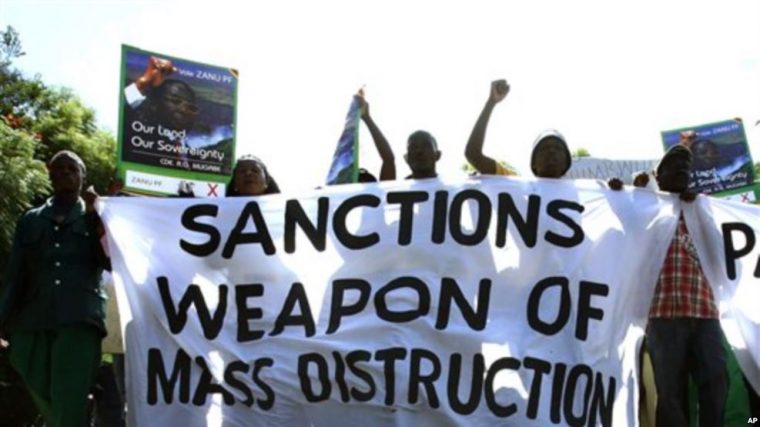 Almost a year since Robert Mugabe was removed and months since elections, Zimbabwe’s economic crisis continues to deepen.
Almost a year since Robert Mugabe was removed and months since elections, Zimbabwe’s economic crisis continues to deepen.
A severe lack of foreign currency has crippled local businesses. Inflation is skyrocketing. And dire shortages of fuel, medical supplies and other essentials threaten social unrest.
There are many reasons for this worrying economic situation. Among them are decades of government mismanagement, widespread corruption and mistrust. But a significant part of responsibility for the ongoing crisis is in the hands of policymakers thousands of miles away.
Ordinarily, one would expect Zimbabwe’s economy to be improving right now. Its authoritarian strongman Mugabe is no longer in power. Multi-party elections have been held recently. And the new government, which includes respected technocrats in some key positions, has repeatedly declared the country “open for business“.
One would have expected these changes to prompt promises of Western development assistance, access to IMF and World Bank credit, and international investment.
All of these things would be fundamental to stabilising Zimbabwe’s economy, and many Western partners are keen to invest. But this re-engagement has been made much more difficult because of US sanctions.
These measures are undermining Zimbabwe’s ability to access credit from international financial institutions and attract much-needed foreign investment.
On paper, the US Zimbabwean Democracy and Economic Recovery Act (ZIDERA) is about rule of law. It was first passed in 2001 at the height of Zimbabwe’s land seizures and was purportedly a reaction to the Zimbabwean government not protecting the property rights of white farmers.
The act was part of US- and UK-led efforts to cut off lending by international financial institutions, impose political and economic sanctions, and isolate Zimbabwe.
Specifically, ZIDERA placed individual sanctions on Mugabe and his cronies. It also enshrined into law the US stance that funding from the likes of the IMF and World Bank could not be reinstated until the act was lifted.
When President Mugabe was finally removed in 2017, many hoped that his departure would pave the way for Zimbabwe to end its isolation.
Continued next page
(699 VIEWS)






0 Comments